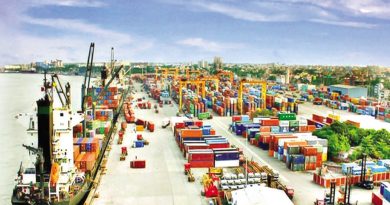With formal approval from the government and Bangladesh Bank, the World Bank Group’s credit-guarantee arm, the Multilateral Investment Guarantee Agency (MIGA), has initiated consultations with local banks and government agencies to structure a trade-financing framework for essential imports, officials said.
MIGA — a key World Bank institution providing political risk insurance and credit-enhancement guarantees — is exploring options to support Bangladesh’s import financing through a trade guarantee facility. A team of MIGA officials recently visited Dhaka to discuss the proposed arrangements with stakeholders, including the Finance Division, Bangladesh Bank, and relevant ministries.
The objective of this facility is to facilitate the import of critical commodities such as food, fertilisers, LNG, and medicines — at a time when securing affordable financing is vital for the country’s economic stability.
During the meetings, the MIGA team focused on designing the “most suitable” trade-financing structures, with officials confirming that the central bank and finance ministry have expressed strong support for the initiative. Notably, the arrangement is expected to allow Bangladesh Bank to provide operational support without adding liabilities to its balance sheet.
The Bangladesh Bank governor has also pledged to brief the International Monetary Fund (IMF) on the guarantee-based structure and to move forward with MIGA’s trade-financing support.
MIGA also held separate consultations with the Ministry of Agriculture to explore a dedicated facility for fertiliser imports, in collaboration with the Bangladesh Agricultural Development Corporation (BADC).
Bangladesh currently receives trade financing from multilateral sources including the Islamic Trade Finance Corporation (ITFC), Asian Development Bank (ADB), and the World Bank, primarily to fund imports of petroleum, LNG, fertiliser, and essential food items. MIGA’s participation would expand the country’s access to credit-guarantee-backed facilities, providing a new channel for lower-risk commercial financing.
MIGA has informed the Ministry of Finance and related agencies that it will now reinitiate internal processes and engage commercial lenders to build the trade-finance facility.
Earlier this year, MIGA submitted a proposal to finance LNG imports, offering a revolving letter-of-credit (LC) facility of up to $350 million annually, aimed at easing Petrobangla’s long-term working capital needs amid rising domestic gas shortages. The agency indicated that the size of this facility could increase over the next seven years.
However, sources said the Ministry of Power, Energy and Mineral Resources had sought a larger support package—around $500 million—under concessional terms. Officials also requested relaxed lending conditions, citing MIGA’s proposal as being more expensive than trade-financing terms currently offered by other development partners.
Under the proposed model, local and international banks would arrange trade loans for opening LCs for LNG imports. MIGA would serve as the guarantor, backing loans issued by commercial banks on behalf of the importer, Petrobangla, the state-run energy company.
The ongoing discussions mark an important step toward diversifying Bangladesh’s external financing options, particularly in the face of growing demand for energy and food security amid global market volatility.






